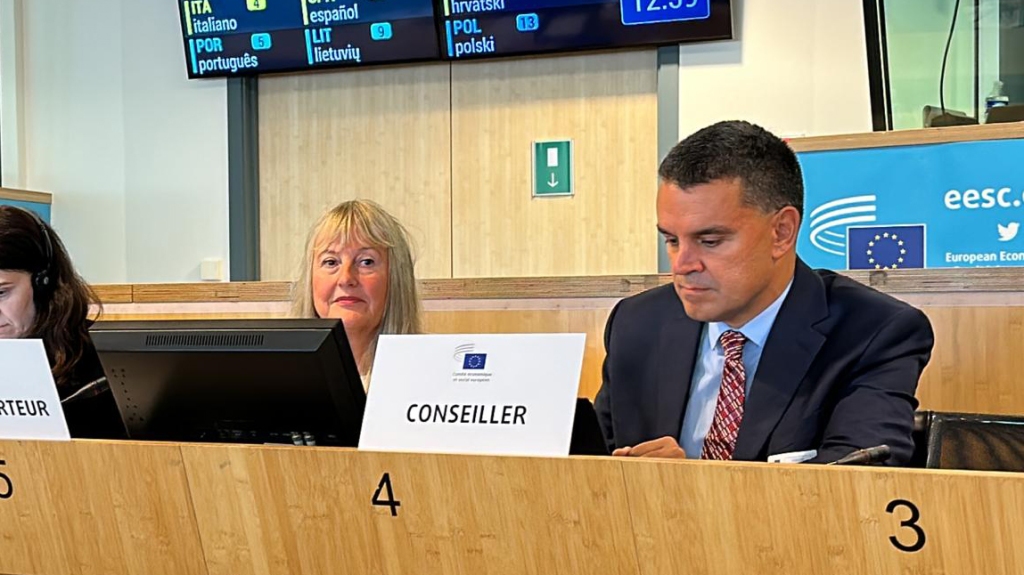The European Economic and Social Committee (EESC) has approved a report on energy policies and strategies in the Euro-Mediterranean region. The document, led by Ioannis Vardakastannis and co-directed by María Helena de Felipe, Vice President for Foreign Affairs of the EESC, underscores the need for an energy transition towards zero carbon emissions in a region that will be disproportionately affected by climate change.
The report, titled «Energy Policies and Strategies in the Euro-Mediterranean Region,» points out that countries in the Southern and Eastern Mediterranean are not progressing toward decarbonization at the same pace as the European Union.
The Mediterranean is blessed with significant renewable energy sources, especially in terms of solar and wind energy. The current geopolitical situation, following Russia’s invasion of Ukraine, has emphasized the importance of energy and placed it at the center of Euro-Mediterranean relations. However, the Mediterranean region will be disproportionately affected by the climate crisis and has already been identified as one of the critical global climate crisis hotspots. Given that the energy supply sector is the largest contributor to greenhouse gas emissions (GHG), expediting the energy transition from fossil fuels to zero-carbon sources in the Mediterranean region is a top priority.
The document also underscores that the Mediterranean boasts significant renewable energy sources, particularly in solar and wind energy. These sources represent unprecedented opportunities for energy security and cooperation throughout the region.
The report highlights that the shift from fossil energy to renewable energy has geopolitical, economic, and social consequences that the Union must address. It also emphasizes that energy interconnections are essential for developing an integrated energy system in the Euro-Mediterranean region.
In a unanimous decision, the EESC approved the report with 70 votes in favor, marking a significant step toward addressing the energy challenges and opportunities in the Euro-Mediterranean region. As energy transitions gain momentum, the region finds itself at a crossroads of change, where sustainable energy policies can not only mitigate climate impacts but also forge a more interconnected and prosperous future.


De Felipe stated, «The energy transition is essential for the Euro-Mediterranean region.»
María Helena de Felipe, Vice President for Foreign Affairs of the EESC, stated following the approval of the report that «the energy transition is essential for the Mediterranean region, which will be disproportionately affected by climate change.»
«The region has significant renewable energy sources but requires substantial political and financial support to harness them to their full potential,» she added.
The EESC’s report is a significant step in promoting the energy transition in the Euro-Mediterranean region. The document provides clear recommendations for governments and EU institutions and will serve as a foundation for future negotiations on energy policies in the region.

María Helena de Felipe Lehtonen
Promoting the Internalization and finance in Small and Medium Companies & in business opportunities for Euro-Africa and Middle East Companies
